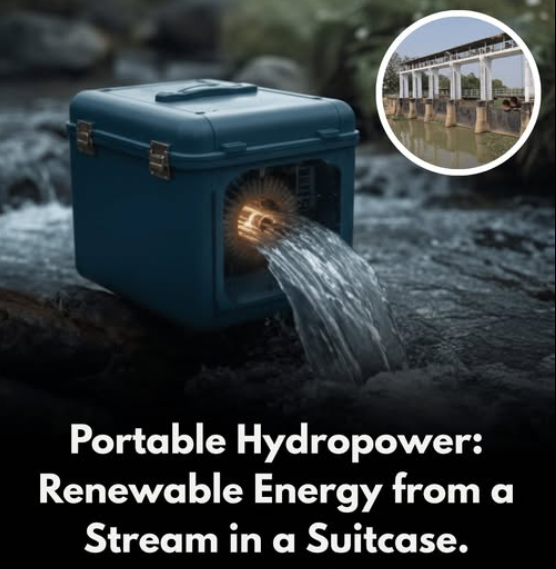This op-ed, written by SACE Senior Decarbonization Manager Shelley Robins & Dr. Crystal Cavalier, originally appeared in the Greensboro News & Record on December 22, 2024.
Pipeline Company Misleads the Public for Profit and Fossil Fuels
When a Texas company gets its employee in Pennsylvania to write to our local newspaper about the weather we just experienced, you have to wonder why.
Williams Transco already owns more than 33,000 miles of pipelines in the country, but they are trying to ram through an unneeded massive expansion called the Southeast Supply Enhancement Project (SSEP) in our area. What they won’t tell you is that their projects keep getting scrapped because communities don’t want them: like the Northeast Supply Enhancement Project and Regional Energy Access Expansion.
 Maybe it’s because they have one of the worst safety records in the country. According to the watchdog Pipeline Safety Trust, Williams is worse than other gas transmission operators in fatalities, cost and releases per incident.
Maybe it’s because they have one of the worst safety records in the country. According to the watchdog Pipeline Safety Trust, Williams is worse than other gas transmission operators in fatalities, cost and releases per incident.
Or it could be that, while they greenwash their image, they fail to mention recent winter blackouts in Texas and North Carolina were caused by freezing temperatures that shut down gas wells and caused the failure of mechanical components at gas-fired power plants — not by inadequate pipeline capacity.
For example, the Natural Resources Defense Council noted that “during Winter Storm Elliott in December 2022, 65 percent of gas plant outages in the region managed by PJM (the regional transmission organization) were due to plant failures. In addition, gas production fell by 20 percent due to the freezing of production wells.”
Transco stands to make a 14% return on investment for this $1.5 billion methane project. That would fuel Duke Energy’s proposed massive gas buildout in the South — not in the Triad. In their own application they state: “The benefits of the project are not realized by those who are impacted.”
Instead, the impacts are born by those whose properties are impacted and benefits are seen by those outside the project area, “including jobs, additional natural gas and very limited tax revenues.”
Transco’s massive methane pipeline threatens groundwater contamination for well users in Oak Ridge and areas crossing the headwaters of the city of Greensboro’s three water supply reservoirs, Lakes Higgins, Brandt and Townsend. The 42-inch-diameter pipe would cross more than 100 individual water bodies across 16 watersheds, including one major crossing of the Dan River in Rockingham County that would span 230 feet.
Transco doesn’t want you to know that hazardous sites are along its proposed route, that, if disturbed, could exacerbate groundwater contamination risks. The proposed route crosses one Superfund site, two unlined landfills, five inactive hazardous waste sites and dozens of underground storage tanks.
Furthermore, Transco claims that increasing gas supplies is good for the climate because gas replaces coal. Methane, the primary ingredient in what the gas industry calls “natural gas,” is a fossil fuel and greenhouse gas, and it is 80 times more potent than carbon dioxide in trapping heat in the atmosphere over the short term. Methane is released across the gas supply chain — from the wells that produce it, through the pipes that carry it, even from the appliances that use it. Methane alone is responsible for one-third of global warming. Burning methane still releases carbon dioxide, the primary driver of climate change, and is responsible for super-charging Hurricane Helene, a storm that will require decades and billions for recovery.
How can Williams be proud of increasing the likelihood of another Helene?
Join residents across Virginia and North Carolina standing up to these bullies and demand our elected officials say no to this unneeded, dirty, dangerous project. We deserve better, cleaner, cheaper energy — and we know we can get it. Find out more at www.nossep.org
The post Pipeline company misleads the public for profit and fossil fuels appeared first on SACE | Southern Alliance for Clean Energy.
Pipeline company misleads the public for profit and fossil fuels
Renewable Energy
The Positive Effects We’ve Had on Others Are Profound, Whether We Know It or Not
 There’s a theory that most people underestimate the positive effects they’ve had on other people.
There’s a theory that most people underestimate the positive effects they’ve had on other people.
Yes, that’s the theme of “It’s a Wonderful Life,” but it’s also the core of the 1995 film “Mr. Holland’s Opus,” in which a music teacher who deemed that his life had been a failure because he never completed writing a great symphony, is gently and beautifully corrected. Please see below.
The Positive Effects We’ve Had on Others Are Profound, Whether We Know It or Not
Renewable Energy
Renewable Energy Concepts Can’t Violate the Laws of Physics
 In the early days of 2GreenEnergy, my people and I were vigorously engaged in finding solid ideas in cleantech that needed funding in order to move forward.
In the early days of 2GreenEnergy, my people and I were vigorously engaged in finding solid ideas in cleantech that needed funding in order to move forward.
I vividly remember a conversation with a guy in Maryland who was trying to explain the (ostensible) breakthrough that he and his team had made in hydrokinetics. When I was having trouble visualizing what we was talking about, he asked me to “think of it as a river in a box.”
“Oh!” I exclaimed. “You mean you take a box full of standing water, add energy to it get it moving, then extract that energy, leaving you with more energy that you added to it.”
“Exactly.”
I politely explained that the laws of physics, specifically the first and second laws of thermodynamics, make this impossible.
He wasn’t through, however, and insisted that, in his office, his people had constructed a “working model.”
Here’s where my tone descended into something less than 100% polite. I told him that he may think he has a working model, but he’s wrong; if he believes this, he’s ignorant; if he doesn’t, but is conducting this conversation anyway, he’s a fraud.
“But don’t you want to come see it?” he implored.
“No. Not only would not fly across the country to see whatever it is you claim to have built, I wouldn’t walk across the street to a “working model” of something that is theoretically impossible.”
—
I tell this story because the claim made at the upper left is essentially identical. You’re pumping water up out of a stream, and then claiming to extract more energy when the water flows back into the stream.
Of course, social media today is rife with complete crap like this. We’ve devolved to a point where defrauding money out of idiots is rapidly replacing baseball as our national pastime.
Renewable Energy
What Canada Has that the U.S. Doesn’t
 Until recently, I would have moose, maple syrup, and frozen tundra.
Until recently, I would have moose, maple syrup, and frozen tundra.
Now I would say: decency, honesty, and class.
-
Greenhouse Gases7 months ago
Guest post: Why China is still building new coal – and when it might stop
-
Climate Change7 months ago
Guest post: Why China is still building new coal – and when it might stop
-

 Greenhouse Gases2 years ago
Greenhouse Gases2 years ago嘉宾来稿:满足中国增长的用电需求 光伏加储能“比新建煤电更实惠”
-
Climate Change2 years ago
Bill Discounting Climate Change in Florida’s Energy Policy Awaits DeSantis’ Approval
-
Climate Change2 years ago
Spanish-language misinformation on renewable energy spreads online, report shows
-

 Climate Change2 years ago
Climate Change2 years ago嘉宾来稿:满足中国增长的用电需求 光伏加储能“比新建煤电更实惠”
-
Climate Change Videos2 years ago
The toxic gas flares fuelling Nigeria’s climate change – BBC News
-

 Carbon Footprint2 years ago
Carbon Footprint2 years agoUS SEC’s Climate Disclosure Rules Spur Renewed Interest in Carbon Credits



